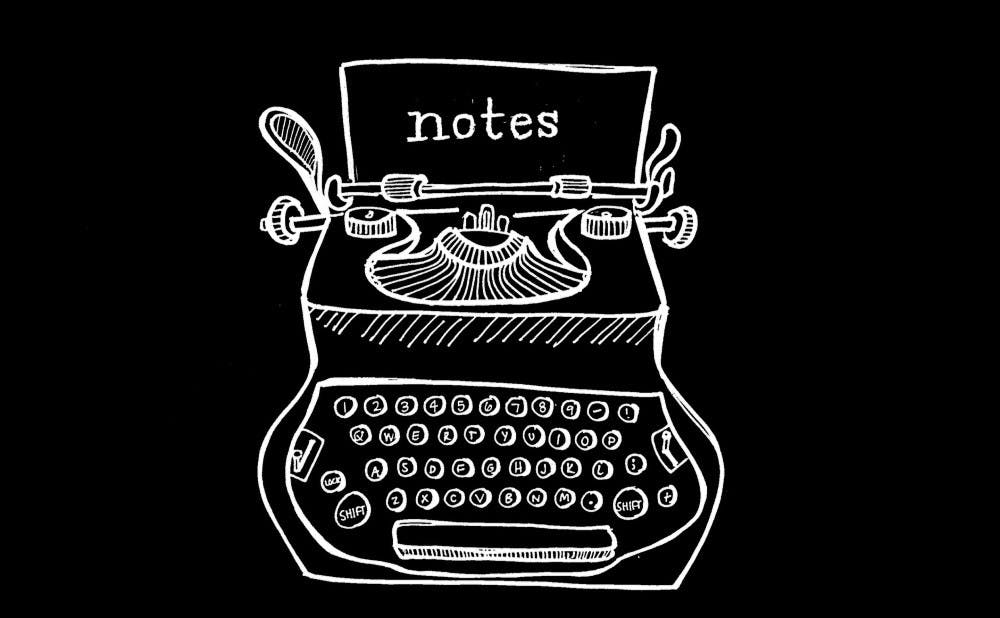I love to talk, and I love to write. I’ve been talking, talking, talking for about 19 years now, and I’ve been writing for a little more than half of that. According to my parents, I started to talk early, because apparently my toddler self had a lot on which to pass judgement.
Although I have always been a through-and-through introvert, I realized as a middle school debater that I get a rush whenever I speak in public. This high has endured, and to this very day I get just a bit light-headed whenever I raise my hand in class, though the pay-off is tremendous as the pressure and anxiety dissipate. I’m an introvert who likes to talk. I have a fondness for words and, in particular, the condensation of them: Although my friends of the past and certainly of the present consider me talkative, their usage of the word has an amiable twist. Perhaps a more precise word to describe this enduring quality would be conversational, because although my talk is substantive, I like to think it’s substantial. It’s the protein of conversations, not the carbs.
I consider my affection for writing to be a necessary byproduct of the conversing process. Introversion and talking are not mutually exclusive, nor are conversation and writing. As water nourishes the seed, writing serves to clarify, consolidate and embody meaning as transmitted through language. In doing so, that meaning develops, marked with reference points – new seeds –from which new meanings may grow. I talk so that I may write, and I write so that I may talk. This personal significance of writing took me awhile to attain, and I blame it in part on the false conception that writing necessitates, in and of itself, a personal space for thought and a natural affinity for being alone. While I agree with this statement to a certain extent, I find it limited. Writing is not hermetic. Though it may come from you, you do not exist without external factors, without a method by which you obtain meaning. I obtain my meaning through conversation, and for that reason I only like to be alone when I consciously and actively choose to be.
Writing has many purposes, two of which are to make sense of ourselves and to understand the world. I now know that I adhere to both, at least once they’re filtered through verbal language. This realization is distinctly personal, and it came about partly as a result of my joining Recess and figuring out what made the most sense, what felt most natural. My freshman year gave me the space to experiment with different types of writing, and I hopped between organizations for nearly a semester and a half before settling on Recess. I was writing short-form and long-form prose, aesthetic and Rupi Kaur-esque poetry, essays on my own epistemology, and even literature analyses in Spanish. During that period, I sometimes wondered if my only lasting personality trait was my fickleness. I wasn’t sure what exactly I liked about writing. I couldn’t pick out the one kernel of meaning. I mildly enjoyed everything.
I can’t say that doing my first interview was when it “clicked,” or when I realized that Recess was for me. Rather, my realization was a result of assessing my past behavior, of wondering why I came back to meetings and kept picking up stories. And the simple fact is that everything suddenly felt so easy when I began writing stories centered on artists.
There was just something that felt so natural about speaking to photographers, performers, filmmakers, poets and the like, and writing stories that engaged with their work, even if I still felt that flutter in my chest every time I conducted an interview. When I sit down to write an article, it sometimes felt like it has already been written. In just a couple of hours, I could knock out a thousand words, and I’d never been able to do that before. Finally, this pathway of writing through talk, this methodology that feels most me, was now mine to have. I hadn’t realized it until I’d already worn it in. In my conversations with artists, meanings were constructed through our discourse, and I now simply had to disclose them. The better the questions I posed, the richer the meaning. And the more substantive (and substantial) the meaning, the easier it became to embody it in the form of an article. Now I could talk and now I could write.
Having the opportunity to obtain meaning through discourse – real, personal, wordly meaning –is what I most value about writing for Recess. I don’t go into interviews to garner factual information, but rather to understand a person (or at least the person behind the art). And in doing so, I think I’ve been able to comprehend my own personhood a little bit better. Whether it be experimental film, poetry, photography or theater, I am made to appreciate aesthetic, intellect, and even history via approaches I’d never considered before, and each time I come to see our shared human existence as slightly more beautiful. Or perhaps the beauty was always there, and now, at last, I may tap into it.
Alizeh Sheikh is a Trinity sophomore and Recess interviews and reviews editor.
Get The Chronicle straight to your inbox
Signup for our weekly newsletter. Cancel at any time.

